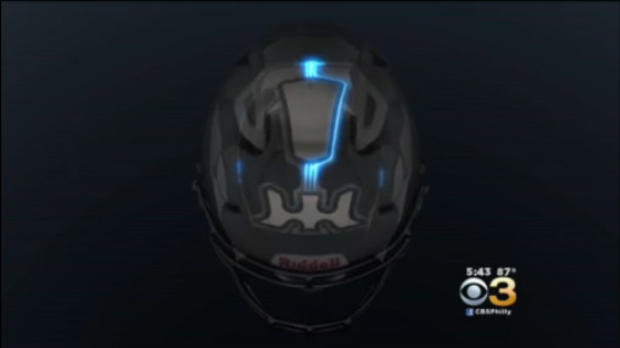New 'Smart Helmet' Technology Senses Where, How Hard Players Take Hits To Head
Follow CBSPHILLY Facebook | Twitter
PHILADELPHIA (CBS) -- It is no secret that football is a hard-hitting sport. An intense focus has shifted on how players can suffer from concussions and brain damage due to the nature of the game.
Research indicates that high school athletes are more vulnerable to concussions than older players.
Mom Says 'Dragon's Breath' Cereal Treats Sent Her Son To The Hospital
"If we don't do something about it I feel like as coaches, helmet manufacturers, then kids are going to stop playing," asserts Sheldon Evans, head coach of the Crescent High School football team.
Now a growing number of teams are using state-of-the-art equipment called "smart helmets." These smart helmets have the ability to sense where and how hard players take a hit to the head.
"It makes me feel safer when I'm playing. I don't have to worry about it as much," says one of the football players on the Crescent High team.
So what makes these helmets so smart? They are equipped with sensors that transmit information to trainers on a handheld device.
They then send alerts when an impact is above normal for that position and playing level.
The calculations are based on 5 million impacts collected since 2004 and have been monitored around the country to give researchers a better idea of what occurs during hard contact plays.
"If he's taking that same impact every day then something's wrong, we need to adjust," Evans explains.
Evans uses the technology to plan practices and correct the way players hold their heads and take hits during plays.
DA: Murder Charges Reduced In Fatal Rittenhouse Square Stabbing After Reviewing Video Of Incident
"It's not anything that's going to prevent a concussion, but it's going to help us at practice and help the trainer to be aware of a problem. Or maybe not a problem, but something they'll want to check out," said Evans.
Some critics say that smart helmets don't provide accurate or adequate readings.
Doctors are concerned that inaccurate sensors will give coaches and players a dangerous, false sense of security.




